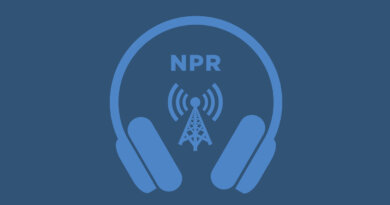Can Smart Technology Really Improve Your Sleep?
Feb. 2, 2024 – Andisheh Nouraee was having trouble sleeping.
“I was waking up a lot at night, so I tried to optimize things in my life to improve sleep,” said Nouraee, who first tried to track his sleep with a wearable band but was skeptical about its accuracy.
If he woke up at night to use the bathroom or because of a noise, it was not always reflected in the next day’s sleep report. He now wears a smart watch to bed, which he said is more precise.
Nouraee, who lives in a suburb of Atlanta, made some changes that typically lead to better sleep – not eating close to bedtime, drinking less alcohol, and decreasing evening screen time. He also cut down on caffeine, switching from black to decaffeinated tea. And he sets his watch to vibrate 15 minutes before bedtime as a reminder to start winding down.
“I’ve absolutely changed my behavior. It worked,” he said. He now gets deeper sleep.
Nouraee is among many now using various high-tech devices to track their sleep, all in an effort to better understand how well we’re resting. But it’s what we do with that information that is most important.
More information about sleep is great, but it’s more useful if it changes behavior around sleep, said Nitun Verma, MD, a member of and spokesperson for the American Academy of Sleep Medicine.
If all that data doesn’t prompt long-term changes to sleep behaviors, it might not be worth tracking. In late 2019, Bret Brantley tried a wearable band that tracked physical activity, heart rate, and sleep. Each morning, he answered about a dozen questions on an app about caffeine intake, alcohol use, exercise, and more from the previous day.
The app generated a red, yellow, or green indicator reflecting whether he had enough sleep to recover from activities the previous day. “I was completely fascinated by the technology,” he said.
Based on this feedback, Brantley changed his short-term behavior. If he knew he had a big day coming up at work, for example, he would cut back on anything that might interfere with a good night’s sleep, like alcohol or caffeine.
But 3 years later, he stopped using the wearable device. “I didn’t change my behavior in the long term, even though I had the data to do it. If you don’t act on it, what’s the point?”
Brantley no longer tracks his sleep. But as a New Year’s resolution for 2024, he cut out caffeine altogether. “I’ve been sleeping incredibly for the whole month. I sleep through the night and I wake up refreshed.”
According to a recent Consumer Reports survey, Nouraee and Brantley are in good company. Only 9% of 2,207 adults surveyed in December said their quality of sleep was “very good.” Another 38% said their sleep quality was fair, 34% responded good, 15% said poor, and 9% reported very poor.
The Importance of Good Sleep
Getting a good night’s rest doesn’t just make us feel better the next day. Research has shown that a lack of solid sleep can impact our mental health, our heart, and our weight.
While you sleep, your blood pressure goes down, giving your heart and blood vessels a bit of a rest. The less sleep you get, the longer your blood pressure stays up during a 24-hour cycle. High blood pressure can lead to heart disease, including stroke.
A chronic lack of sleep can raise the chance of having a mood disorder. One large study showed that when you have insomnia, you’re five times more likely to have depression, and your odds of anxiety or panic disorders are even greater.
When you’re well-rested, you’re less hungry. Being sleep-deprived messes with the hormones in your brain – leptin and ghrelin – that control appetite.
With those out of balance, your resistance to the temptation of unhealthy foods goes way down. And when you’re tired, you’re less likely to want to get up and move your body. Together, it’s a recipe for putting on pounds.
The time you spend in bed goes hand-in-hand with the time you spend at the table and at the gym to help you manage your weight.
Do Smart Mattresses Make You Smarter (About Sleep)?
If you don’t want to wear a device to bed, a “smart mattress” may be an option to consider. These beds reveal each morning how well you slept the night before. But how reliable are the results, are these devices worth the investment, and do they lead people to change their sleep habits to get a better night’s sleep?
Turns out, it depends on who you ask.
“Smart beds come with a number of added features that strike us as probably nice to have, but not something the average person should feel the need to pay extra for,” said Tanya Christian, a home and appliances writer for the independent, nonprofit Consumer Reports.
The organization tests hundreds of mattresses and has found “that you can get a quality mattress with the right balance of support and pressure relief without any added bells and whistles,” she said.
The biggest gain from sleep technologies is information, Verma said. Historically, people went to bed, slept at night, and it was a “big black box.” “Your only real chance of knowing if you slept well or not was how you felt when you woke up or how alert you were during the day.”
In contrast, now we have technology “that is getting better and better on the consumer side,” said Verma, a doctor board-certified in sleep medicine who describes himself as “absolutely super interested in technology.”
But with so many options out there and little rigorous evidence to show that one technology is superior to another, what’s a sleep-challenged consumer to do?
More Options than Answers
Search “smart mattress” or “sleep tracker” online, and you’re likely to get inundated with sponsored ads from companies touting their products. So, researching smart sleep options can be just as baffling as the moment you walk into a mattress store and consider the 50 mattresses in front of you.
Wearable sleep trackers also vary widely in cost, from about $100 up to several hundred dollars. Smart mattresses typically cost several thousand dollars.
Even no two smart mattresses are designed the same. One might have an air bladder in the center to detect movement or changes in position, or technology to detect and adjust mattress temperature. Other smart mattresses feature a microphone to detect snoring that triggers a vibration or changes the incline of the mattress to encourage a snorer to change position without waking them up.
“In a perfect world, you would lay down on a smart mattress, there would be electrodes on your head and that would be able to monitor your brain wave patterns, to know what stages you’re in,” Verma said. “Obviously, that would be pretty inconvenient.”
One helpful strategy is not to focus on any one bad night of sleep. Instead, use these at-home monitoring devices to look for overall sleep patterns and trends over time. “For example, if your sleep was really good for 3 weeks in September, what was going on then? Can you replicate that now? Or if your sleep was really poor during those weeks, can you avoid what was behind it?”
Try Before You Buy
It’s important to spend time trying mattresses out before you buy one, experts say. “Go into the showroom and give a mattress a thorough check, spending at least 10 minutes on each one that you’re considering, and trying every position you sleep in,” Christian said.
In the case of a smart bed, “consider taking advantage of a risk-free trial that allows you to use the bed for a select period of time at home and return it if it doesn’t meet your expectations,” she advised. Make sure the return policy includes both frame and mattress.
Verma agreed. “My advice here might sound pretty generic, but trying out the mattress for a longer period of time is great.” Try it in your own house or show up “on a Tuesday morning to a mattress store with your magazine or phone and just lay down and spend some time on it.” More time will make for a more confident decision, he said.
Consumer Reports does not evaluate smart bed features in their mattress testing. “But certainly, things like adjustable firmness, temperature balancing, head and foot adjustability, and other customizable sleep experiences may be appealing to some sleepers,” Christian said.
Healthy Skepticism
“Ultimately what we are talking about is reliability, Verma said. “There is concern with some consumer devices where the proof is not yet known. It’s great to take all of this with a grain of salt – unless we get strong proof or some kind of government approval process.”
“If you have concerns about sleep tracking devices … it is good to just meet with your doctor, or a sleep medicine doctor if you have one in your area, to discuss sleep in general,” he said.



